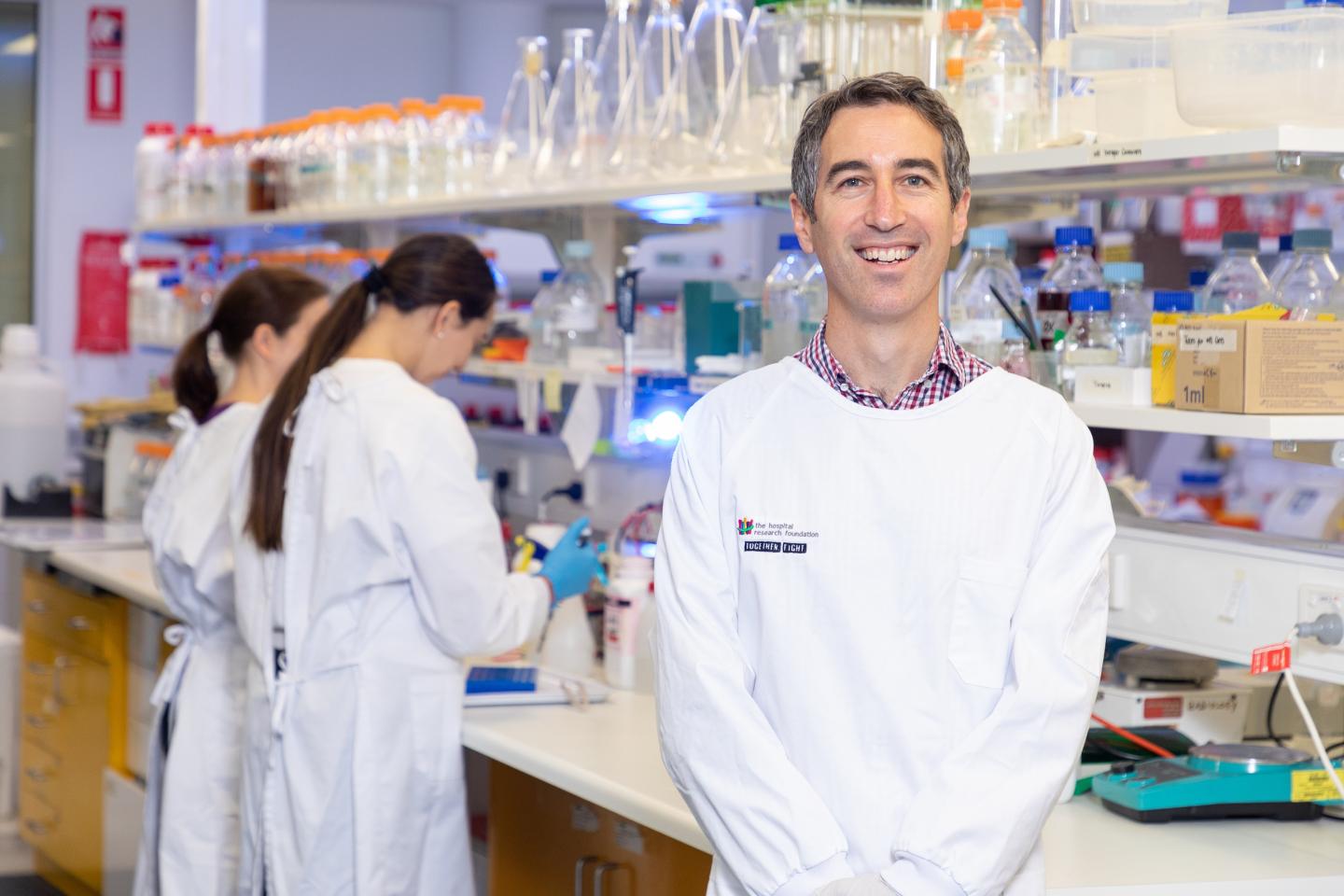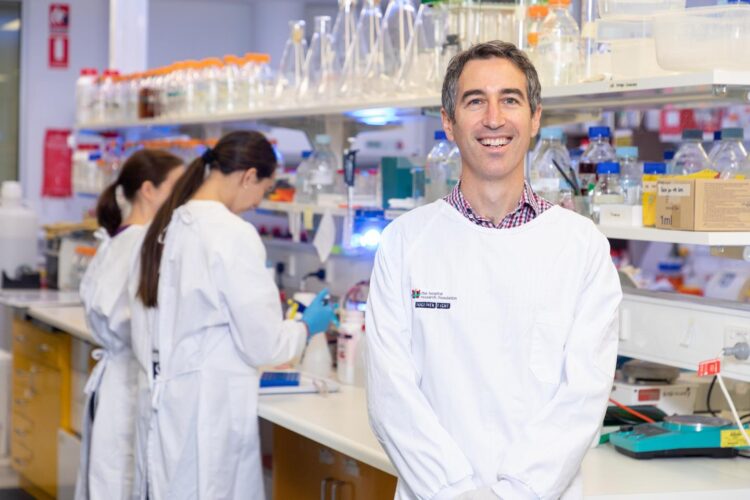Why aggressive subtype can resist treatment

Credit: The Hospital Research Foundation
Australian research has identified a new mechanism in which prostate cancer cells can ‘switch’ character and become resistant to therapy.
These findings, just published in Cell Reports, are an important development in unravelling how an aggressive subtype of prostate cancer, neuroendocrine prostate cancer (NEPC), develops after hormonal therapies.
It is well established that some tumours show increased cellular ‘plasticity’ in response to new or stressful conditions, such as cancer therapy, says lead researcher Associate Professor Luke Selth, from the Flinders Health and Medical Research Institute.
This plasticity allows the cancer cells to adapt and continue to grow by evolving into different cell types that no longer respond to the therapy.
“Increased cellular plasticity is increasingly recognised as a key feature by which prostate cancers become resistant to therapy and progress to a lethal stage,” he says.
“Our new study reveals that a particular molecule, the microRNA ‘miR-194’, can enhance this plasticity in prostate cancer, leading to the emergence of NEPC.
“By targeting miR-194, we were able to slow down and inhibit the growth of prostate cancer models with neuroendocrine features.”
Associate Professor Selth says while this study is a long way from clinical application, it “nevertheless provides us with important new insights into how prostate cancers ‘evolve’ in response to therapy”.
There are currently no effective treatments for NEPC, with estimates up to 15% of men may develop this aggressive subtype of prostate cancer after hormonal treatment – a major problem because these men face “very poor outcomes”.
“By revealing another regulator of prostate cancer cell plasticity that can promote evolution of tumours, our study highlights why prostate cancer is so difficult to cure.
“While this reality is sobering, we hope that our study and lots of other research going on around the world will eventually lead to smarter, more targeted ways to treat NEPC or even prevent its emergence,” Associate Professor Selth says.
###
The new paper, ‘Post-transcriptional gene regulation by microRNA-194 promotes neuroendocrine transdifferentiation in prostate cancer’ (2021) by RC Fernandes, J Toubia, S Townley, AR Hanson, BK Dredge, KA Pillman, AG Bert, JM Winter, R Iggo, R Das, D Obinata, MURAL investigators, S Sandhu, GP Risbridger, RA Taylor, MG Lawrence, LM Butler, A Zoubeidi, PA Gregory, WD Tilley, TE Hickey, GJ Goodall and LA Selth has been published in Cell Reports (Elsevier) DOI: 10.1016/j.celrep.2020.108585
Acknowledgement: This research was funded by the NHMRC, Cancer Council of South Australia, National Breast Cancer Foundation, Victorian Cancer Agency, the Movember Foundation and Prostate Cancer Foundation of Australia. Flinders University Associate Professor Selth is supported by a Principal Cancer Research Fellowship awarded by Cancer Council’s Beat Cancer project on behalf of its donors, the South Australian Government through the Department of Health, and the Australian Government’s Medical Research Future Fund.
Co-authors include experts from The University of Adelaide, ACRF Cancer Genomics Facility (SA Pathology and UniSA), Centre for Cancer Biology, Institut Bergonié Unicancer (France), Northwestern University (US), Nihon University School of Medicine (Japan), Monash University, University of Melbourne, SAHMRI and University of British Columbia (Canada).
Media Contact
Associate Professor Luke Selth
[email protected]
Related Journal Article
http://dx.





